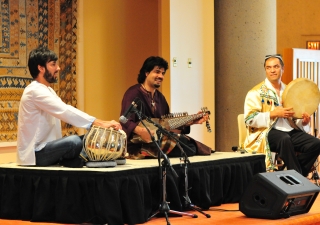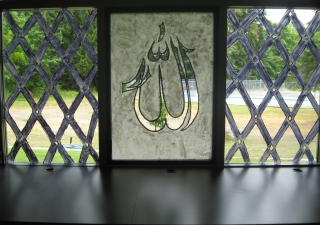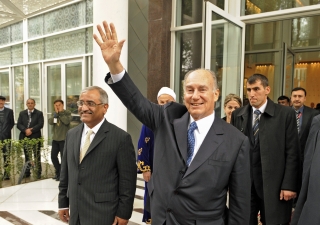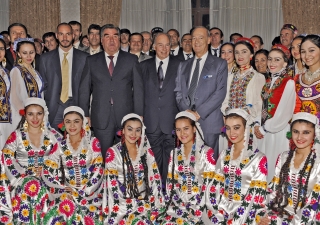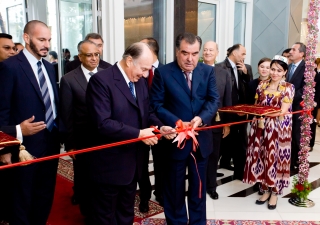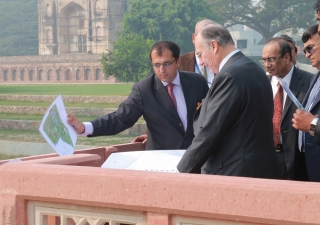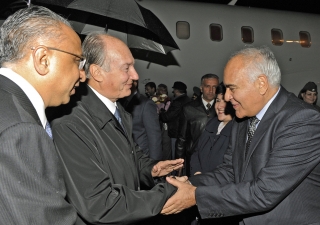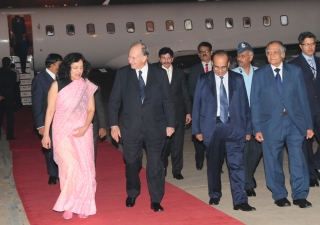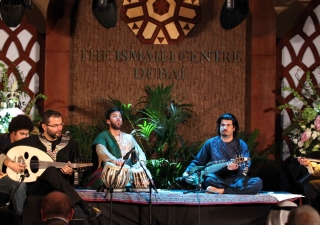News
Artistic production – including folk theatre – was a component of early civilisations including Greek, Roman, and Vedic cultures. In modern times, visual production is intertwined with far-reaching broadcast and social technologies. Hanif Kanji looks at a group of passionate Ismaili producers who use diverse media to influence social attitudes.
Masters of the Afghan rubab, the tabla and the dayra gathered at the Ismaili Centre, Burnaby on 4 November, where they conjured the rich musical legacies of Central Asia. The event, which took place in collaboration with the Aga Khan Music Initiative, was prefaced with an address by the British Columbia Minister of Community, Sport and Cultural Development.
Masters of the Afghan rubab, the tabla and the dayra gathered at the Ismaili Centre, Burnaby on 4 November, where they conjured the rich musical legacies of Central Asia. The event, which took place in collaboration with the Aga Khan Music Initiative, was prefaced with an address by the British Columbia Minister of Community, Sport and Cultural Development.
This past summer, students of The Institute of Ismaili Studies’ Graduate Programme in Islamic Studies and Humanities (GPISH) travelled to seven different locations across the globe as part of their field research projects. Zuleikha Haji and Sehr Tejpar share accounts from two sides of the globe.
Dushanbe, 1 November 2011 – Mawlana Hazar Imam’s visit to Tajikistan drew to a close today. Following the inauguration of the Dushanbe Serena Hotel, members of the Jamat gathered across the street to bid farewell to Hazar Imam as he departed the Serena.
Dushanbe, 31 October 2011 – The President of Tajikistan, His Excellency Emomali Rahmon hosted a dinner in honour of Mawlana Hazar Imam's visit at the Saodat Teahouse (chaikhana). Prince Amyn and Prince Rahim were also present at the dinner, which featured performances of music, dance and song by a number of Tajik artists.
Dushanbe, 1 November 2011 – Mawlana Hazar Imam and President Emomali Rahmon of Tajikistan, inaugurated a new Serena Hotel in the heart of Dushanbe, the Tajik capital. Prince Amyn and Prince Rahim were present for the ceremony, as were dignitaries from the government, development and tourism sectors.
Delhi, 30 October 2011 – Mawlana Hazar Imam toured the Humayun’s Tomb - Sunder Nursery - Hazrat Nizamuddin Basti Urban Renewal Project, in the heart of the Indian capital, to review progress on the project.
Dushanbe, 30 October 2011 – Mawlana Hazar Imam arrived in Tajikistan today for the inauguration of the Dushanbe Serena Hotel. Prince Rahim and Prince Amyn had arrived earlier, and will also participate in the opening ceremony.
Delhi, 29 October 2011 – Mawlana Hazar Imam arrived in India today to review progress on the restoration of Humayun's Tomb and the work at Sunder Nursery in the capital region of Delhi. The projects are part of a larger initiative that also aims to preserve and rehabilitate landmark buildings in Nizamuddin Basti, while improving the quality of life for inhabitants of the area.
Los Angeles, 28 October 2011 – Describing him as “an unparalleled leader in development, cultural preservation and philanthropy,” the Urban Land Institute has named Mawlana Hazar Imam the 2011 Laureate of the J.C. Nichols Prize for Visionaries in Urban Development. The prize recognises an individual whose career demonstrates a commitment to the highest standards of responsible development.
Twelve inspiring and talented artists from across the Middle East and Central Asia performed a beautiful and thought-provoking concert at the Ismaili Centre, Dubai recently. It was an important occasion for both the Ismaili Centre and the Aga Khan Music Initiative, intent on bridging gulfs that have existed for the past hundred years.


